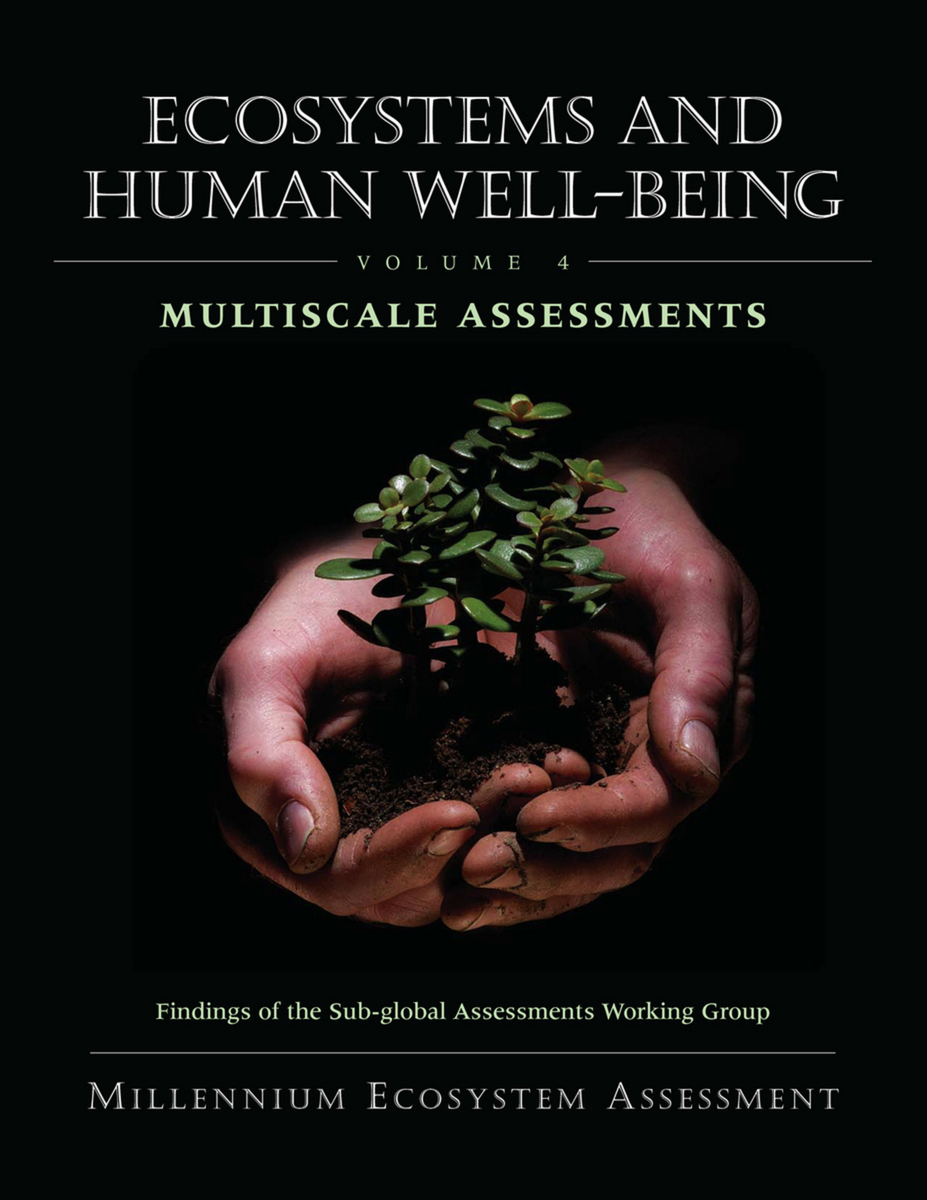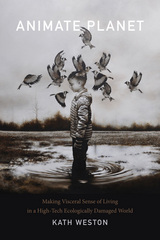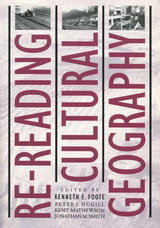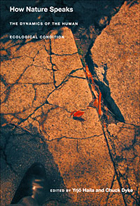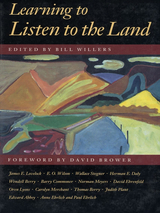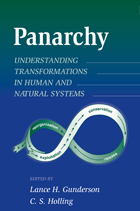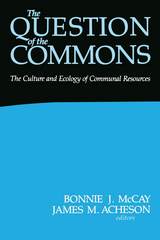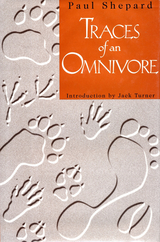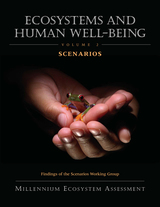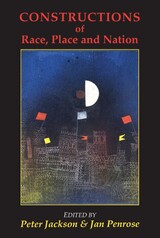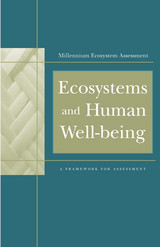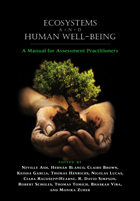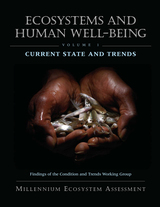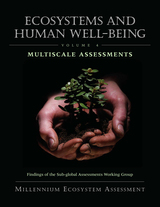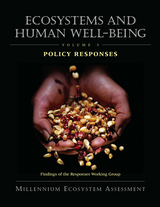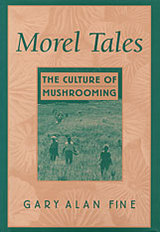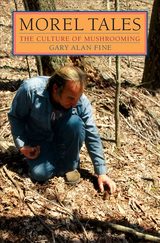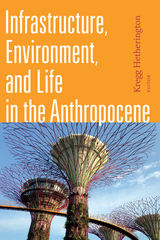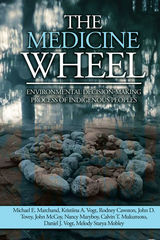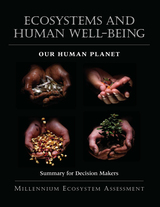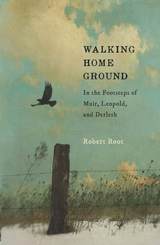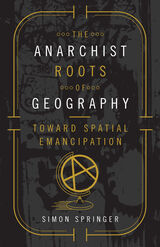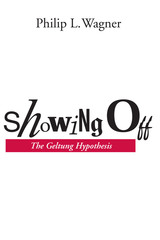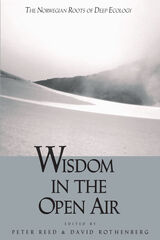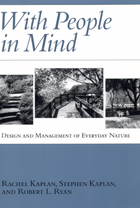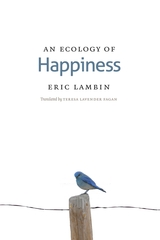Ecosystems and Human Well-Being: Multiscale Assessments: Findings of the Sub-Global Assessments Working Group
Island Press, 2005
Cloth: 978-1-55963-185-3 | Paper: 978-1-55963-186-0
Library of Congress Classification GF50.E266 2005
Dewey Decimal Classification 333.95
Cloth: 978-1-55963-185-3 | Paper: 978-1-55963-186-0
Library of Congress Classification GF50.E266 2005
Dewey Decimal Classification 333.95
ABOUT THIS BOOK | AUTHOR BIOGRAPHY | TOC | REQUEST ACCESSIBLE FILE
ABOUT THIS BOOK
One of the major innovations of the Millennium Ecosystem Assessment is the incorporation of local and regional assessmentsù33 in allùin a global portrait of the planetÆs health. It is the first global assessment of ecosystems to include not only a diversity of ecosystems, but to draw on a wide range of cultural orientations and intellectual traditions, including those of indigenous peoples.
The Sub-global Assessments Working Group integrated information from multiple sources and found that biophysical factors such as land-use change, climate change and variability, pollution, and invasive species have a significant effect on human well-being across cultures. For example, in places where there are no other social safety nets, diminished human well-being tends to increase immediate dependence on ecosystem services, which can damage the capacity of those local ecosystems, which in turn appears to increase the probability of natural disaster or conflict.
Representing the baseline and framework for ongoing assessments of ecosystem and human well-being on a variety of scales around the world, Multiscale Assessments provides students, researchers, and policy-makers with the most comprehensive methodology for assessing ecosystems at local, national, and regional scales.
The Sub-global Assessments Working Group integrated information from multiple sources and found that biophysical factors such as land-use change, climate change and variability, pollution, and invasive species have a significant effect on human well-being across cultures. For example, in places where there are no other social safety nets, diminished human well-being tends to increase immediate dependence on ecosystem services, which can damage the capacity of those local ecosystems, which in turn appears to increase the probability of natural disaster or conflict.
Representing the baseline and framework for ongoing assessments of ecosystem and human well-being on a variety of scales around the world, Multiscale Assessments provides students, researchers, and policy-makers with the most comprehensive methodology for assessing ecosystems at local, national, and regional scales.
See other books on: Biodiversity | Biological diversity | Ecosystem management | Environmental management | Environmental policy
See other titles from Island Press
